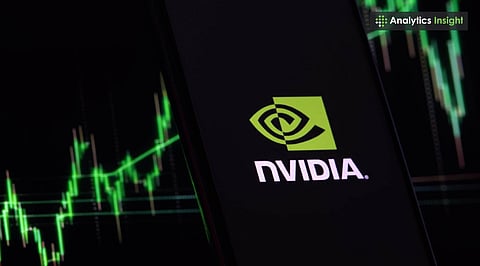

NVIDIA became the first public company to reach a $5 trillion market capitalization on Wednesday, extending a two-year run fueled by artificial-intelligence spending. Shares jumped as much as 5.6% intraday, touching $212.19, before easing from the session high.
The milestone comes roughly four months after NVIDIA crossed $4 trillion in early July. Its gains have powered index performance this year, contributing about 18.6% of the S&P 500’s advance through September 30.
NVIDIA’s weight in the S&P 500 now stands at nearly 9%, outpacing the next-largest constituents. Bloomberg data also show the firm’s market value exceeds the combined capitalization of stock markets in the Netherlands, Spain, the UAE, Italy, and Poland.
Microsoft and Apple each hover near $4 trillion, underscoring how AI-linked megacaps dominate US equities in 2025.
Fresh announcements helped extend the rally. NVIDIA agreed to invest $1 billion for a 2.9% stake in Nokia and to co-develop AI-native networking and 6G platforms. The companies confirmed the transaction on Tuesday.
The company also announced a partnership with Uber to develop a large Level 4 robotaxi and delivery network, alongside Stellantis as a vehicle supplier.
CEO Jensen Huang told investors that NVIDIA has about $500 billion in chip bookings and plans to build seven AI supercomputers for the US Department of Energy. Those disclosures arrived on Tuesday and helped push the stock toward the threshold.
NVIDIA additionally introduced NVQLink, a system that links quantum processors with its AI accelerators, aiming to speed hybrid quantum-classical computing.
Policy commentary also shaped sentiment. President Donald Trump said he may discuss NVIDIA’s Blackwell chips with China’s Xi Jinping and has previously floated the idea of allowing a scaled-back version to be exported to China. Markets interpreted the remarks as potential relief for restricted sales.
Analysts warn that broad shipments of even a downgraded Blackwell part to China could erode US advantages in AI computing, underscoring the stakes surrounding export rules.
Huang signaled additional partnerships in South Korea this week, citing work with groups including Samsung Electronics and Hyundai Motor. Local and wire reports flagged pending contracts tied to AI factories and chip supply. Those moves follow a broader strategy to deepen global supply chains as US restrictions curb advanced-chip sales to China.
Even after the surge, valuation sits below recent peaks. NVIDIA trades at under 34 times estimated earnings, which is below its five-year average of around 39 and not far from the Philadelphia Semiconductor Index's multiple, which is in the high-20s.
Wall Street remains largely positive. Of 80 analysts tracked by Bloomberg, more than 90% rate the stock a buy, while one - Seaport Global’s Jay Goldberg - maintains a sell call.
Huang’s personal fortune has climbed to about $180 billion alongside NVIDIA’s rise. The company’s shares have gained roughly 50% year to date, keeping it at the center of the AI-driven bull market.
Also Read: NVIDIA Bets $20 Billion on Elon Musk’s xAI: The Biggest AI Chip Deal in History
Join our WhatsApp Channel to get the latest news, exclusives and videos on WhatsApp
_____________
Disclaimer: Analytics Insight does not provide financial advice or guidance on cryptocurrencies and stocks. Also note that the cryptocurrencies mentioned/listed on the website could potentially be risky, i.e. designed to induce you to invest financial resources that may be lost forever and not be recoverable once investments are made. This article is provided for informational purposes and does not constitute investment advice. You are responsible for conducting your own research (DYOR) before making any investments. Read more about the financial risks involved here.
